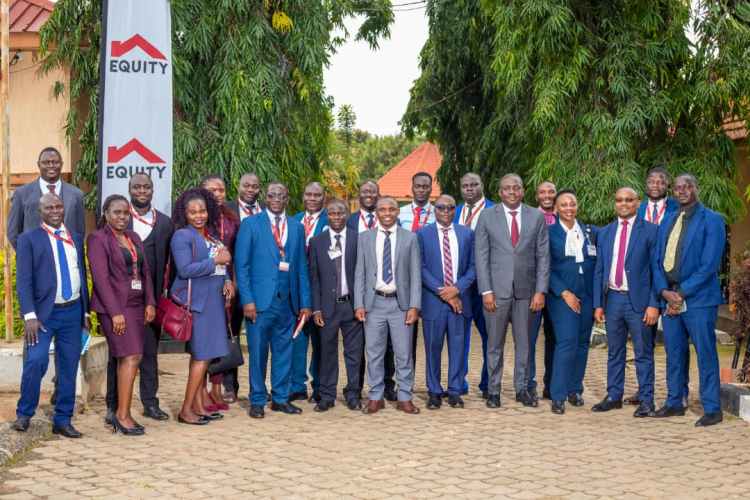On Thursday, Equity Bank Uganda extended its Tupange Business Ne Equity nationwide series to Arua, under the theme “Financing Integrated Value Chains and SME Growth.” The forum brought together entrepreneurs, community leaders, and development partners to explore opportunities for small and medium enterprises (SMEs) and highlight the role of value chain financing in building resilient businesses.
Welcoming participants, Charles Orodriyo, Branch Manager of Equity Bank Arua, said the initiative embodies the bank’s mission of transforming lives and societies. He urged business owners to embrace innovation, pursue growth, and invest in personal development.

“At Equity Bank, our goal is to transform lives and communities. I encourage entrepreneurs in Arua to embrace change and grow both in their businesses and in their personal lives,” Orodriyo noted.
Delivering the executive address on behalf of the Executive Director, Robert Wanok, Head of Retail Banking, reiterated the bank’s Pan-African vision anchored in the Africa Recovery and Resilience Plan.

He explained that Equity operates on a three-pillar model—commercial banking, social impact through the Equity Foundation, and sustainability. Highlighting agriculture, mining, manufacturing, trade, and MSMEs as critical drivers of Uganda’s growth, Wanok stressed Equity’s commitment to empowering SMEs through digital innovations, tailored credit solutions, and cross-border trade financing.
Adding a local perspective, Peter Ssemakalu, Regional Manager for Business Growth and Development, shared a Northern Uganda proverb: “A goat can feed a family, but only if it does not eat your crops.” He likened it to SMEs, emphasising that with proper guidance and financial support, businesses can generate value, profit, and jobs.
The keynote address was delivered by Draecabo Trinity Ceasar, Chairperson of the Ayivu Development Agency, who called on SMEs to cultivate strong relationships with financial institutions. Using a practical analogy, he said:
“Just as children are taught to read the Bible daily to grow, SMEs must engage with their bankers consistently if they want to thrive.”

He urged business owners to be detail-oriented, resourceful, collaborative, and committed to learning in order to achieve long-term success.
A panel discussion further unpacked the challenges faced by SMEs in Northern Uganda. Key concerns included reliance on raw produce with little value addition, informality and poor record-keeping that limit access to credit, and weak market linkages that hinder competitiveness despite opportunities within the refugee-hosting West Nile region. Speakers recommended deeper value chain integration, stronger business networks, and enhanced financial literacy as pathways to unlocking growth.
Equity Bank also showcased a suite of tailored financial solutions for SMEs, including:
Easy Stock Financing for retailers and distributors
Grain Trader Financing for aggregators
Easy Float Financing for mobile money agents
Asset and Vehicle Financing for businesses investing in equipment
Unsecured credit for contractors and suppliers with valid contracts or purchase orders
The forum climaxed with the SME Awards 2025, where Equity recognised outstanding clients in the Greater North. Winners included:
Madi West-Nile Diocese – SME Business Influencer Award
Cress Africa Foundation Limited – SME Customer Loyalty Award
Kuluva Hospital – SME Ecosystem Customer Award
Through the Tupange Business Ne Equity series, Equity Bank reaffirmed its pledge to walk hand in hand with SMEs—providing financial tools, partnerships, and knowledge that enable them to scale, compete, and strengthen Uganda’s economy.












